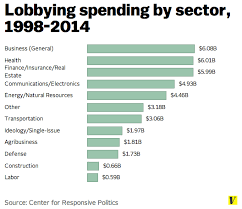What does $17 billion mean to you?
If you are an American investor, you should take note since this is your money.
Suppose you are in the financial services industry. In that case, you should take note because it is the money you get from fees, expenses, and rebates that unsuspecting investors pay you to manage their retirement and investing funds.
The flow of this $17 billion and whether more of it goes into the accounts of individual investors and not financial professionals is driving Republicans, the powerful financial services lobby, and the Trump administration’s move against financial reform. In fact, it is the only reason.
“In essence, the financial services industry is more concerned about how the $17 billion in fees and expenses gets into their own pockets and not in the retirement security of their largely anonymous, unsophisticated and unknown clients.”
In Paul Krugman’s column of Feb. 6, 2017, called “Springtime for Scammers” he wrote:
“Last week, Mr. Trump released a memorandum calling on the Department of Labor to reconsider its new “fiduciary rule,” which requires financial advisers to act in their clients’ best interests — as opposed to, say, steering them into investments on which the advisers get big commissions. He also issued an executive order designed to weaken the Dodd-Frank financial reform, enacted in 2010 in the aftermath of the financial crisis.
“Both moves are very much in line with the priorities of congressional Republicans and, of course, the financial industry. For both groups really, really hate financial regulation, especially when it helps protect families against sharp practice.
“Why, after all, was the fiduciary rule created? The main issue here is retirement savings — the 401(k)’s and other plans that are Americans’ main source of retirement income over and above Social Security. To invest these funds, people have turned to financial professionals — but most probably weren’t aware that these professionals were under no legal obligation to give advice that maximized clients’ returns rather than their own incomes.”
The main reason why Trump and the financial services lobby hates financial reform and increasing investor protections is because a 2015 Obama administration study “concluded that “conflicted investment advice” has been reducing the return on retirement savings by around one percentage point, costing ordinary Americans around $17 billion each year.
And here is the most important reason: That $17 billion has been going into fees and rebates that became part, and only part, of the large salaries paid to financial salespeople, mutual fund wholesalers, financial executives, investment managers, and people who have no interest at all in the economic well-being of their customers.
The only concern about large segments of the financial services industry is their economic well-being and whether they can continue generating fees and expenses that propel their large personal salaries.
In essence, the financial services industry is concerned about the well-being of their retirements and not the retirement security of their largely anonymous and unknown clients.
So why do the Republicans and the Trump administration want this theft to continue? It’s simple: No one advocates for average Americans’ financial and retirement security. And this will be a burden that millions of Americans will bear for decades.











